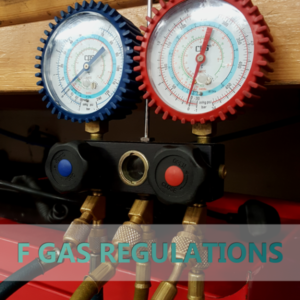 The UK government has launched an inquiry into F-gas emission policies and the future of the F-gas regulations post-Brexit.
The UK government has launched an inquiry into F-gas emission policies and the future of the F-gas regulations post-Brexit.
The inquiry by the Environmental Audit Committee will also look at the UK’s progress on reducing F-gas emissions, and the impact leaving the EU will have on future progress and reporting.
“The UK’s F-gas reduction targets are set and monitored by the EU. With Brexit looming, businesses need clarity on how the UK will reduce F-gas emissions and on who will ensure the Government meets its targets,” Environmental Audit Committee chair Mary Creagh said.
As part of the EU, the UK is bound to the F-gas regulation (517/2014) and its attendant phase down target to reduce HFC use and sales by 79% by 2030. The UK is also party to the UN’s Montreal Protocol which, through the Kigali Amendment, plans to cut HFC use by a similar amount by 2036.
The Kigali Amendment could be seen as a ‘back stop’ if the UK operates outside of the EU’s regulatory regime, but UK withdrawal from the EU raises several issues. Firstly, because the UK is party to the Montreal Protocol as an individual state and as part of the EU it may be unclear if it is bound by the whole (or part) of the agreement as the UK leaves. Secondly, as environmental policy is a devolved matter there is potential for policy divergence on F-gases.
One of the major stumbling blocks would be how the UK can operate within the European quota system if it is no longer part of the EU?
The Committee invites submissions on a broad range of questions including what action the Government needs to take to ensure that the EU’s 2015 F-gas regulation is incorporated into UK law or whether the UK should actually go beyond EU regulatory minimums and develop stronger F-gas legislation?
It will also look at which UK body should have oversight of adherence to F-gas legislation and how it could be adequately resourced to ensure compliance.
The inquiry will also consider whether the Government is doing enough to reduce F-gases. Latest analysis by the Committee on Climate Change suggests that UK emissions have not fallen at the rate expected, though their modelling suggests that if the EU F-gas regulation works as intended the UK is still in line with targets. It will look at whether there are blockers preventing adoption of existing alternatives to F-gases and if there is potential to develop new cost-effective replacements.
The Committee is seeking submissions (maximum 3,000 words) from all interested parties by 12pm on 6 November. Later submissions will be accepted, it says, but may be too late to inform the first oral evidence hearing.
Source: http://www.coolingpost.com/uk-news/uk-inquiry-f-gas-regs-post-brexit/




